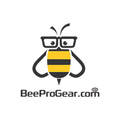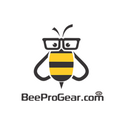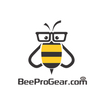Starting a beekeeping venture is a rewarding and eco-friendly way to support the environment, produce honey, and offer pollination services. However, before you begin, it's important to understand the beekeeping laws and regulations in your area. Following these rules ensures you're operating legally and responsibly. At BeeProGear, we not only provide top-quality beekeeping gear but also help guide you through the necessary legal steps to ensure a safe and compliant beekeeping experience.
Here’s what you need to know about the key regulations before setting up your first hive:
1. Understanding Local Zoning Laws and Urban Beekeeping Regulations
The first step to starting a beekeeping operation is ensuring that your local area allows for beekeeping. Urban beekeeping laws vary by location, and it's important to check with local authorities or zoning boards to find out about any restrictions regarding hive placement. Some cities or municipalities may restrict the number of hives, the location of the hive on your property, or may even require you to obtain a special permit.
Before you start setting up your beehive, be sure to verify that you're allowed to keep bees on your property. BeeProGear is here to provide advice on how to navigate these regulations and help ensure your hives are positioned correctly to avoid any conflicts with neighbors.
2. Hive Registration and Health Inspections
Many states and local authorities require that beekeepers register their hives. Hive registration is a vital part of maintaining a healthy bee population, as it allows for tracking and monitoring of bee diseases and pests, such as the Varroa mite. By registering your hives, you’ll be contributing to efforts that help maintain healthy, thriving bee populations and minimize the spread of harmful diseases.
At BeeProGear, we encourage all beekeepers to stay informed about local health regulations and register their hives properly. We also provide support with beekeeping tools and inspection kits to make your hive monitoring easier.
3. Beekeeping Equipment Standards
To safely manage your hives and produce high-quality honey, you need proper beekeeping equipment. The gear you use should not only meet safety standards but should also enhance your efficiency as a beekeeper. At BeeProGear, we offer protective beekeeping suits, gloves, veils, and other essential equipment designed to keep you safe while maintaining the well-being of your bees. Whether you are working with hives for the first time or you’re a seasoned beekeeper, our gear is crafted with care to ensure you’re always protected from stings.
Make sure your beekeeping tools are in top shape, and always clean them properly to avoid contamination. Invest in durable gear to provide the best environment for your bees and to protect yourself during inspections and maintenance.
4. Honey Production and Sales Regulations
If you plan on selling the honey produced by your hives, it’s essential to comply with food safety regulations. These laws ensure that honey products are safe for consumption and are correctly labeled. At BeeProGear, we provide beekeepers with knowledge about honey labeling and packaging guidelines to help ensure compliance with local food safety standards.
Selling honey may require specific information on the label, including the type of honey, weight, and origin. This transparency in labeling helps customers make informed decisions and assures them that they are buying high-quality, legally compliant products.
5. Pollination Services and Commercial Beekeeping
Many beekeepers take their business a step further by providing pollination services for agricultural industries. If you’re considering renting out your hives to farmers for pollination, you may need special permits or licensing, and be aware of commercial beekeeping regulations. BeeProGear helps beekeepers interested in offering commercial pollination services by providing the necessary equipment and resources to maintain healthy, productive hives.
When providing pollination services, make sure you have clear contracts in place with your clients and follow industry-specific regulations regarding hive placement and maintenance. Pollination is a vital service that benefits not only your bees but also the environment.
6. Pesticides and Chemical Use Around Your Hives
Beekeepers must be very cautious when using pesticides or other chemicals near their hives. Bees are highly sensitive to certain chemicals, and improper use can harm your colony. Many regions have laws that restrict the use of pesticides around beehives, and it’s essential to follow these laws to keep your bees safe.
BeeProGear encourages all beekeepers to stay informed about the pesticides and chemicals that are safe to use and when to apply them. Ensuring that your bees are not exposed to harmful chemicals is a critical part of maintaining healthy colonies and producing high-quality honey.
7. Bee Conservation Laws
As part of the growing movement to protect pollinators, some regions have enacted bee conservation laws to safeguard native bee species. While European honeybees are widely kept for honey production, native bees play a critical role in pollination and should be protected. These regulations may include restrictions on the use of non-native bees or requirements to create a bee-friendly environment.
Beekeepers can support bee conservation by planting native flowers, providing water sources for bees, and minimizing the use of harmful pesticides. At BeeProGear, we are passionate about bee conservation and strive to support sustainable beekeeping practices that benefit the ecosystem.
8. Maintaining Bee Health and Disease Prevention
One of the most critical aspects of beekeeping laws relates to keeping bees healthy and preventing the spread of disease. Regular inspections of your hives are essential to identify early signs of disease or pest infestations. If diseases such as American Foulbrood are detected, you may need to take action immediately, including reporting it to local authorities in some cases.
At BeeProGear, we understand the importance of healthy bees. That's why we provide essential tools for regular bee health inspections and offer expert advice on managing diseases like Varroa mites. By staying proactive, you can ensure that your hives remain disease-free and productive.
Final Thoughts: Beekeeping Safely with BeeProGear
Beekeeping can be an incredibly rewarding experience, but it’s important to navigate the regulatory landscape to ensure you're in compliance with all applicable laws. Whether you’re a hobbyist or a commercial beekeeper, understanding and following the rules is key to your success.
At BeeProGear, we are here to support you every step of the way. From protective beekeeping gear to expert advice on regulations, we ensure that you have all the resources you need to start your beekeeping journey safely and responsibly.


